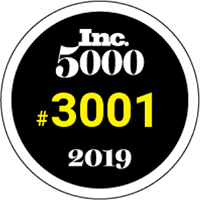QuickBooks is a fantastic product that helps many businesses launch for a tough to beat price. However, many businesses typically begin to run into challenges with the limits of QuickBooks as they begin to delegate duties to a larger staff. Protecting against fraud, complying with GAAP, automating manual entry, and getting out of Excel hell only begin to scratch the surface.
Unfortunately, it is easier to continue to focus on DIY process with the sunk cost of your people and it is hard to tell when you have reached that tipping point where the capital investment would be worth it, until it is VERY obvious.
Control
QuickBooks has security in place that works well for a few users. Yet, once your company grows and the number of people accessing your system grows, the basic security system doesn’t cut it. Multiple business units, separation of duties, and partial reporting & lists are all difficult to implement with QuickBooks Desktop. Typically, businesses end up overly limiting some users or giving too much access to others. It’s a lose-lose situation. On one hand it causes inefficiency to your most important people or on the other it opens up business risk.
Modern systems allow for extremely granular controls where functions can even be limited by dimension (or class in QB vernacular) or accounts. Even if you have access to certain functions, built-in workflow can add an additional layer of security while still enabling your best people to do their jobs. With granular security, you can open up reporting modules to more people but ensure they are only seeing the data they need. Moreover, modern systems even integrate with external dashboarding systems like Power BI to prevent leaks regardless of how users access the data.
Efficiency
QuickBooks is efficiency isn’t questioned for companies of small sizes. In fact, larger ERP systems put in place for small companies can actually get in the way. But, once you achieve a certain complexity, and that complexity varies by industry & company, processes like quoting, job costing, inventory management, reporting, budgeting, and forecasting eventually start to become a challenge in QuickBooks. Eventually, those processes land in Excel.
Your modern ERP system can grow with you. They have many configuration options to allow you to do 90% of what most businesses need at the next level. And if a particular scenario isn’t support or you just want to keep your secret sauce to yourself, you can customize it to fit your business rather than fitting your business to the software. Moreover, modern systems have modern APIs so you can connect best-of-breed systems to create a unique array that matches your business need. You don’t need to find a one-size-fits-all. You need a flexible, integrated system.
Visibility
QuickBooks gives most entrepreneurs the visibility they need in the early stages of their business. As more and more people demand access to data to run daily operations, owners either give away way too much access or become bottlenecks of vital information to do their job. As a division manager, can you quickly see your product margins, your least profitable customers, last time item sold reports, and all the other granular critical KPIs?
A modern system can not only give you those KPIs, dashboards and reports, but it can also help you forecast by those same metrics and compare against your actuals in real-time. It gives your Customer Service Reps access to operational information that helps them sell, Business Managers granular access to set targets and compare against actuals, and everyone access to KPIs to hold themselves accountable. Lastly, they integrate with excellent analytics tools so that even if you have to drop to Excel, you don’t have to recreate calculations and reports over and over again.
It’s Worth It
Modern, cloud ERP systems like Dynamics 365 Business Central, no longer cost the pound of flesh they used to take. There is no doubt they are significantly more expensive than QuickBooks, but the speed of implementation and cost per user make it a much more attractive system for growing businesses who don’t want to lose the reins on their business. If you are interested in seeing a demo, contact us to set up a time.


